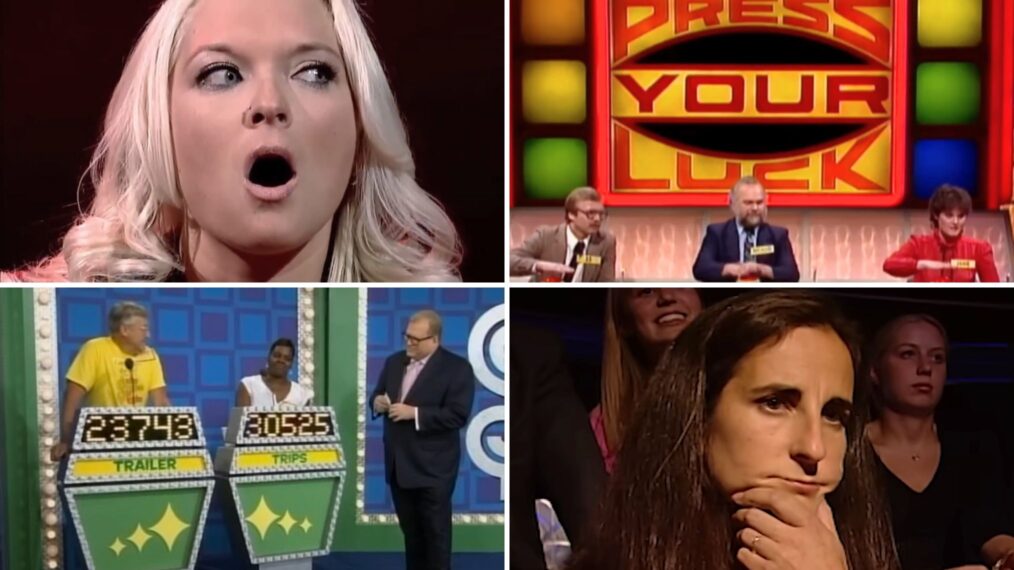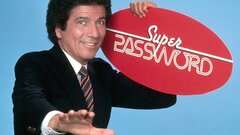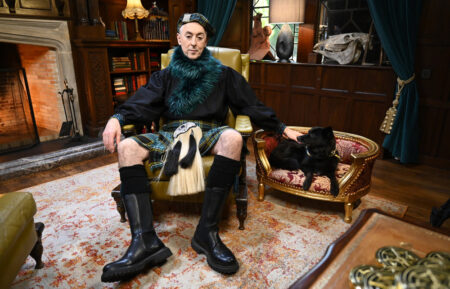The 10 Biggest Game Show Scandals Ever

Legal eagles out there might know U.S. federal law prohibits the “prearranging or predetermining in whole or in part the outcome of a purportedly bona fide contest of intellectual knowledge, intellectual skill, or chance” with the intent of deceiving TV audiences. Congress added that amendment to the Communications Act in 1960 after a slew of rigged quiz shows in the prior decade.
Of course, that wasn’t the end of game show scandals — or of rigging controversies. And the stranger-than-fiction Press Your Luck flap detailed below is the basis of the new film The Luckiest Man in America, which hits theaters on April 4. Below, in chronological order, are our picks for the biggest-ever scandals to hit the game show genre.
1959: Twenty-One’s rigging is exposed
For 14 weeks of episodes between 1956 and 1957, Twenty-One contestant Charles Van Doren had viewers of the NBC quiz show enchanted as he racked up $129,000 in winnings. Other contestants alleged that the program was fixed, however, and finally, in 1959, Van Doren admitted to congressional investigators that producers had fed him answers and coached him on his performances, according to The New York Times.
Van Doren eventually pleaded guilty to second-degree perjury, having lied about the charade to a Manhattan grand jury, and received a suspended sentence. He also lost his job as a Columbia instructor. “I would give almost anything I have to reverse the course of my life in the last three years,” he said amid the scandal, which inspired the 1994 drama film Quiz Show.
1978: The Dating Game hosts killer Rodney Acala
The serial murderer Rodney Acala is known as “the Dating Game Killer” because he made a winning appearance on the syndicated dating game show The Dating Game in 1978 amid his killing spree, as depicted in the recent Netflix film Woman of the Hour.
Acala was eventually caught and sentenced to death in 2010 for the murders of one child and four women, according to ABC News. He also pleaded guilty to the murders of two more women and had been suspected of other killings as well. He died in 2021 while on California’s death row.
1984: Michael Larson finds key to Press Your Luck
In his 1984 appearance on Press Your Luck, contestant Michael Larson won $110,237, a snail boat, and vacations to the Bahamas and Hawaii — all because he had realized the game board’s seemingly random cursor actually followed five patterns that he then memorized.
Michael Brockman, head of CBS daytime programming at the time, said the network didn’t want to fork over the prizes to Larson, since its Standards and Practices department was sure the man had cheated. “I said, ‘How did he cheat? He beat the system,’” Brockman recalled to The Hollywood Reporter in 2019. “CBS finally agreed to pay him what he’d won.”
Press Your Luck producers later reprogrammed the game board with 32 patterns. Larson died from throat cancer in 1999 while the SEC, the IRS, and the FBI were looking for him in connection to a fraudulent multi-level marketing scheme, THR reported.
1988: Fugitive Kerry Ketchem wins big on Super Password
The producers of Super Password apparently didn’t notice that a contestant who identified himself as Patrick Quinn provided them with a fake name, a fake social security number, and a fake driver’s license before winning $58,600 on the NBC game show, as UPI reported.
But when his episode aired, Secret Service agents recognized Quinn as the fugitive Kerry Ketchem, who was wanted for charges of forgery, credit card fraud, and defrauding an auto dealer out of a new car. When Ketchem showed up to the offices of Super Password’s production company to collect his check, the Secret Service was waiting for him.
1989: Bullseye unwittingly hosts murderer John Cooper
Whereas Acala was nicknamed “the Dating Game Killer,” John Cooper is known as “the Bullseye Killer.” By the time Cooper appeared on the British game show Bullseye in 1989, he was already a murderer, having killed brother and sister Richard and Helen Thomas with a shotgun at their home in 1985, according to BBC News. A month after his Bullseye appearance, he fatally shot husband and wife Peter and Gwenda Dixon.
The double murders were cold cases until 2008, when investigators found evidence linking Cooper to the crime, per The Independent. He maintained his innocence but was convicted in 2011 and sentenced to life in prison. During his trial, footage from his Bullseye appearance was shown in court alongside a police sketch of the suspect in the crimes, BBC News reported. The 2021 ITV crime drama The Pembrokeshire Murders dramatized the investigation.
2001: Charles Ingram is declared a Millionaire cheater
In 2001, U.K. Who Wants to Be a Millionaire player Charles Ingram, wife Diana Ingram, and fellow contestant Tecwen Whittock were found guilty of “procuring the execution of a valuable security by deception” amid accusations that Diana and Whitlock coughed during filming to clue Charles to the correct answers, according to The Sun.
The Ingrams had their £1 million prize canceled, received 18-month suspended prison sentences, and were each fined £15,000 and ordered to pay £10,000 in costs, per BBC News. Whittock received a 12-month suspended sentence and was ordered to pay a £10,000 fine and £7,500 in costs, The Sun reported. Their story hit the screen in the 2020 ITV miniseries Quiz.
2008: The Moment of Truth exposes contestant’s infidelity
In a 2008 episode of the Fox game show The Moment of Truth — in which contestants agreed to an invasive polygraph test for a chance at a jacket — a woman named Lauren Cleri admitted on national TV she had cheated on her husband, Frank, and wished she’d married an ex instead.
“It’s hard for our families and friends,” Lauren later told the New York Post. “I haven’t been able to really concentrate since the show. I just keep thinking about Frank’s family and his friends and my family. … Nobody should go through this, it’s a lot of pain, hurt, and heartbreak for everyone involved.”
2008: A perfect Price Is Right bid raises suspicions
The Price Is Right host Drew Carey seemed less than enthused when contestant Terry Kniess provided the first ever right-on-the-money Showcase Showdown bid — $23,743, in his case — in a 2008 episode. Carey thought at the time that Kniess had cheated, as he told Esquire in 2010, but Kniess explained to the magazine he had studied TPIR episodes for months and memorized prize values. That’s how he came up with $23,000 for his showcase, and he said the additional $743 was his go-to PIN, a combination of his wedding date and his wife’s birthday.
But Carey thought Kniess had relied on the price-guessing of an audience member named Ted Slauson, a TPIR superfan who’d also memorized prize values. Slauson had signaled correct answers to contestants since the Bob Barker era, simply because he enjoyed watching contestants win. Kniess ultimately got to keep the prizes, but Slauson told Esquire he’d heard he’d been banned from future tapings. The two men’s story is retold in the 2017 documentary Perfect Bid: The Contestant Who Knew Too Much. According to the Houston Chronicle, TPIR producers have adjusted gameplay to make it harder for viewers to memorize prices.
2010: Our Little Genius pulled from the air after passing answers to contestants
The game show Our Little Genius, a quiz show with kid contestants, was pulled from Fox’s schedule before its 2010 premiere because creator and executive producer Mark Burnett expressed concern over “how some information was relayed to contestants during the preproduction,” according to The New York Times.
The Federal Communications Commission then opened a probe into whether producers gave potential contestants the answers to questions, the Times reported. In a letter to the FCC, a parent of one of the contestants alleged that a staffer told the contestant a list of potential topics and the answers to at least four questions. “He told us that it was very important to know that the hemidemisemiquaver is the British name for the 64th [musical] note,” the letter said.
2020: Mike Richards’ past comments tank his job hosting Jeopardy!
In 2021, Mike Richards went from Jeopardy! executive producer to Jeopardy! host, picked to succeed the late Alex Trebek as emcee of the syndicated quiz show. Then came multiple controversies. One involved the resurfacing of lawsuits in which former Price Is Right models accused Richards of pregnancy discrimination during his time producing that show. Richards denied the allegations in a memo to Jeopardy! staffers, per Variety.
In another controversy, The Ringer highlighted Richards’ past comments on a podcast, ones in which he used “ho” and “slut” in reference to women and said one-piece swimsuits made women look “really frumpy and overweight.” In response, Richards said his “attempts to be funny and provocative were not acceptable.”
Amid fan backlash, Richards lost his hosting job days later and was ousted as executive producer of Jeopardy! and Wheel of Fortune just days later.
From TV Guide Magazine
Behind the Scenes With Gordon Ramsay: 20 Years of Cooking Up TV Hits
The celebrity chef reflects on redefining culinary television and his fiery journey Hell’s Kitchen to Secret Service. Read the story now on TV Insider.












